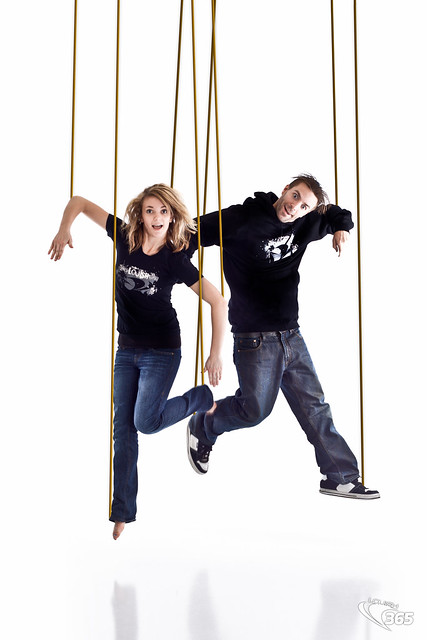
…Right?
Well, not really.
I’d like to bust a myth that I encounter frequently. But first, I need to preface this with two things.
1) It is not my intent to explain why we believe what we believe. I consider that more in the domain of “teaching,” theologically, and I’m not comfortable with that (at least in this forum). If you really want to know, feel free to email me and I’ll pass on whatever information I can.
2) There are, of course, infinite variations in people’s belief systems, so there may be professed “Calvinists” out there who believe differently than what I’m about to tell you. Generally speaking, though, any Calvinist who can tell you clearly what he believes (as opposed to just being Calvinist because the church he grew up in was) will believe in line with this post.
So let’s get on with it. If I (and others like me) don’t believe that people are puppets, what do we believe? ‘Cause Calvinists don’t believe in free will, right?
Well, yes, but…
This is where the misunderstanding comes in.
Calvinists don’t believe in “free will,” but we do believe in “free agency.”
Huh? There’s a difference?
It sounds like semantics – which is why when we say we don’t believe in “free will,” people think “puppets” – but there is a difference. It’s subtle, but it becomes significant from a theological standpoint, in certain contexts.
Free will is the freedom to will what you want. Or, put another way, the ability to want anything, without constraint. Our wills, however, are not free. (Martin Luther wrote about the “bondage of the will.”) Rather, every creature’s will is constrained by its/his nature. In other words, I cannot want anything that is “out of character” for me. (This isn’t necessarily as narrow as it might sound. An animal that is normally docile may be quite aggressive under certain circumstances – such as when its young are threatened. In this case, neither behavior is against the creature’s nature, but each is in character for the given situation.)
Free agency is the freedom to do whatever you will. This, Calvinists believe is a freedom we all possess. (I don’t mean to imply that it is right to do whatever we want at any point. Simply that we have the ability to choose our actions.)
So do we believe that God is pulling cosmic strings, forcing us, as it were, to take certain actions? Generally, no. (I believe that God can, and may miraculously intervene this way in very rare instances, but it’s not how He typically works.) What we believe is that the nature of fallen man and the nature of redeemed man are different, that each of these constrains the will of the individual in question, and that his exercise of free agency will cause him to act accordingly.
What?
The devil had freedom. He left! Do we have any less freedom? God has been angry at people at times, ie. Adam & Eve. Why would a God who knew what would happen get angry at what he obviously knew would happen? He was ‘amazed’ by the centurion. How again can a God that knows all experience amazement/surprise? Intimacy requires freedom from both sides in a relationship. If the intimacy is forced or even ‘coerced’ it certainly has a name.
And we are the ‘Bride’. I don’t care what kind of doctrine a Christian follows, they need to at least chew on theses simple thoughts and stay clear of doctrines that control more than they free…
Everyone on this earth was created in the Father’s image. Not one accident. It is up to us to choose Him back. That’s the rocket science I believe.
Thank you for your thoughts, Kreig! The concerns you’ve raised call for a much larger discussion than a few comments on a blog post, because the post addresses only one part of a big picture (and there are a multitude of different objections in your comment!).
It might ease your mind a bit, though, to know that I completely agree that the devil had freedom to reject God, that humanity has freedom to reject God, and that no one is an accident. It would seem that you’ve missed the primary message of the post, which is that this position is not built on the idea of “coercion.”